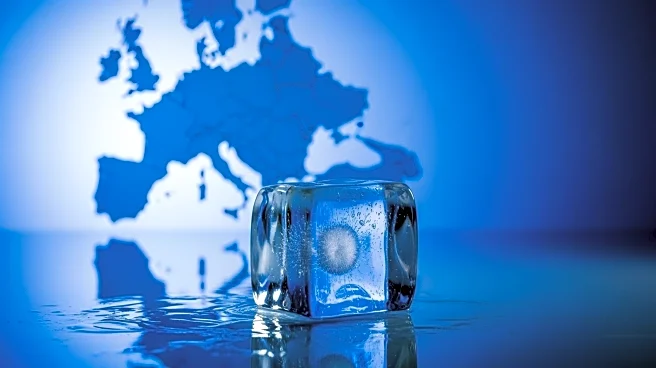What's Happening?
European leaders are set to discuss a proposal to use frozen Russian state assets to support Ukraine at a meeting in Brussels. The plan, referred to as a 'reparations loan,' involves transferring €140
billion worth of Russian assets currently held by Euroclear, a Belgium-based financial institution, to Ukraine. This proposal has been in development for months due to legal complexities and concerns about global financial stability. While some countries like Poland and Finland support the plan, others, including Hungary and Slovakia, may oppose it. The EU has already been using interest from these frozen assets to support Ukraine's defense, amounting to up to €3 billion per year.
Why It's Important?
The proposal to use frozen Russian assets is significant as it represents a novel approach to supporting Ukraine amidst dwindling U.S. support. The plan could provide much-needed financial resources for Ukraine's reconstruction, estimated to cost over $486 billion. However, the move could provoke a strong response from Russia, potentially destabilizing global financial markets. The legal challenges of using sovereign assets, which are protected under international law, add another layer of complexity. If successful, this approach could set a precedent for handling frozen assets in international conflicts, impacting global financial stability and the perception of Western financial institutions as safe havens.
What's Next?
If EU leaders approve the plan, the European Commission will draft a formal legal proposal for the reparations loan. The proposal's success hinges on Ukraine's ability to win the war and Russia's willingness to pay reparations, which remains uncertain. The EU may face the challenge of repaying the borrowed funds if Russia refuses to comply, potentially burdening European taxpayers. The decision could also influence other countries' willingness to store assets in Western financial institutions, affecting their global standing.










